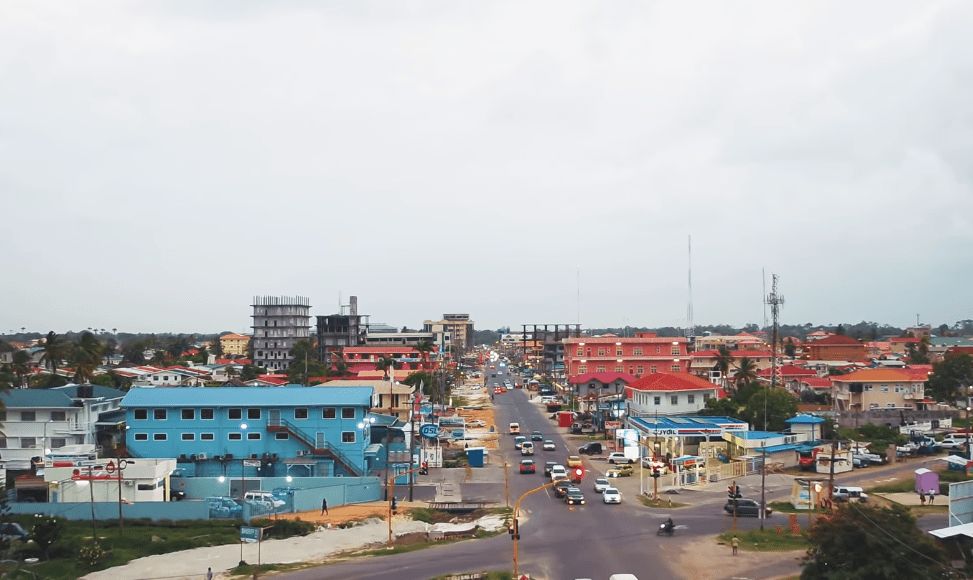Billions of dollars in oil revenue and a plethora of new opportunities could potentially transform one of South America’s smallest nations into a regional powerhouse, but for this to occur, a concerted effort must be made by its people to ensure they are best positioned to manage and benefit from the coming windfall.
The nation of Guyana has approximately 750,000 people and will be producing as much barrels of oil per day by the middle of the next decade, topping off at around 1 million bpd by 2030, something Dr. Valerie Marcel, Researcher at Chatham House, has described as truly transformative.
Just four years ago Guyana had no proven oil reserves since multiple attempts over the decades to find black gold turned up dry.
Now, the country is the most talked about location in the world for greenfield discoveries with a total of 16 made since 2015. Fourteen of those discoveries have been made by US oil major ExxonMobil, amounting to more than 6 billion barrels of oil equivalent.
“Since Guyana’s first commercial oil discovery in May 2015 and the 15 other discoveries since then, we have seen Guyanese move from excitement, to cynicism, to cautious optimism, to growing expectation and lastly to a dawning realization that Guyana is on the cusp of something great,” the country’s Director of Energy, Dr. Mark Bynoe, told a forum on Friday, September 27, in the country’s capital, Georgetown.
Concerned about its ability to manage the windfall coming its way, Guyanese have indeed been sceptical about how the oil revenues will benefit them. In a nation with a history of political instability and corruption claims against public officials, establishing a transparent bipartisan framework for managing its new-found wealth is critical if real benefits are to reach its people.
The sentiments expressed by Guyanese when asked what they would like to see change in the country ranges from free education, to more housing and better infrastructure.
“Well what I think should be done with the revenues of the oil is to enhance the social orders of the people of Guyana. I think it should be spent on eradication of the underprivileged or the pheasant class or the poor,” Derrick Michael Angelo Calendar, an artist, told OilNOW back in 2017 when the full magnitude of the initial world-class discoveries was now beginning to sink in.
Dr. Bynoe says Guyana, as a new and emerging energy producer, finds itself in a crucial and unprecedented position in the country’s history for sustained economic growth and development that can benefit both current and future generations.
“However, to take advantage of this opportunity, optimization of the net benefits from our national patrimony is essential, fostered, inter alia, by the creation and enforcement of the requisite regulatory frameworks, increased human capacity built and sustained for the oil and gas and other sectors, and for robust standards and procedures instituted to maximize the benefits of the oil proceeds,” he said.
Politicians from both sides of the aisle have been talking the talk, regarding having good intentions of ensuring real benefits reach the people and doing so using a bipartisan approach.
“We would like to see the sector, even with a PPP government in office, managed in a bi-partisan way where it rises above politics and that the resources are used to benefit all Guyanese,” Opposition Leader, Bharrat Jagdeo, told the media at a press conference in May.
Finance Minister, Winston Jordan, says the revenue to be earned from the first phase of oil production in the South American country – around US$300M annually – will go directly into the Natural Resources Fund and will eventually begin to facilitate transformational changes in the country. “The 300 million will go offline so it does not create disturbances to the economy…So the legislation is tight on how we should withdraw money, for what purposes and so on,” he stated.
The Natural Resources Fund – still to be operationalised – is expected to play a key role in the management of oil revenue.
With the “mother of all elections” now just months away, Guyanese working together to bridge the ethnic divide and ease political tensions will be pivotal, if the country is to truly benefit from the billions of dollars in oil revenue coming its way.
“…all of this will pale into insignificance unless we appreciate and learn to live together as a nation. Not judging each other or distributing the proceeds from the oil largesse based on the colour of our skins, the texture of our hairs or our political affiliation, but based on the fact that we are all Guyanese,” the head of the Energy Department reminds.
Oil production from the Liza Phase 1 Development is set to begin within months, opening a new chapter in the history of the lone English-speaking country on the South American continent.



